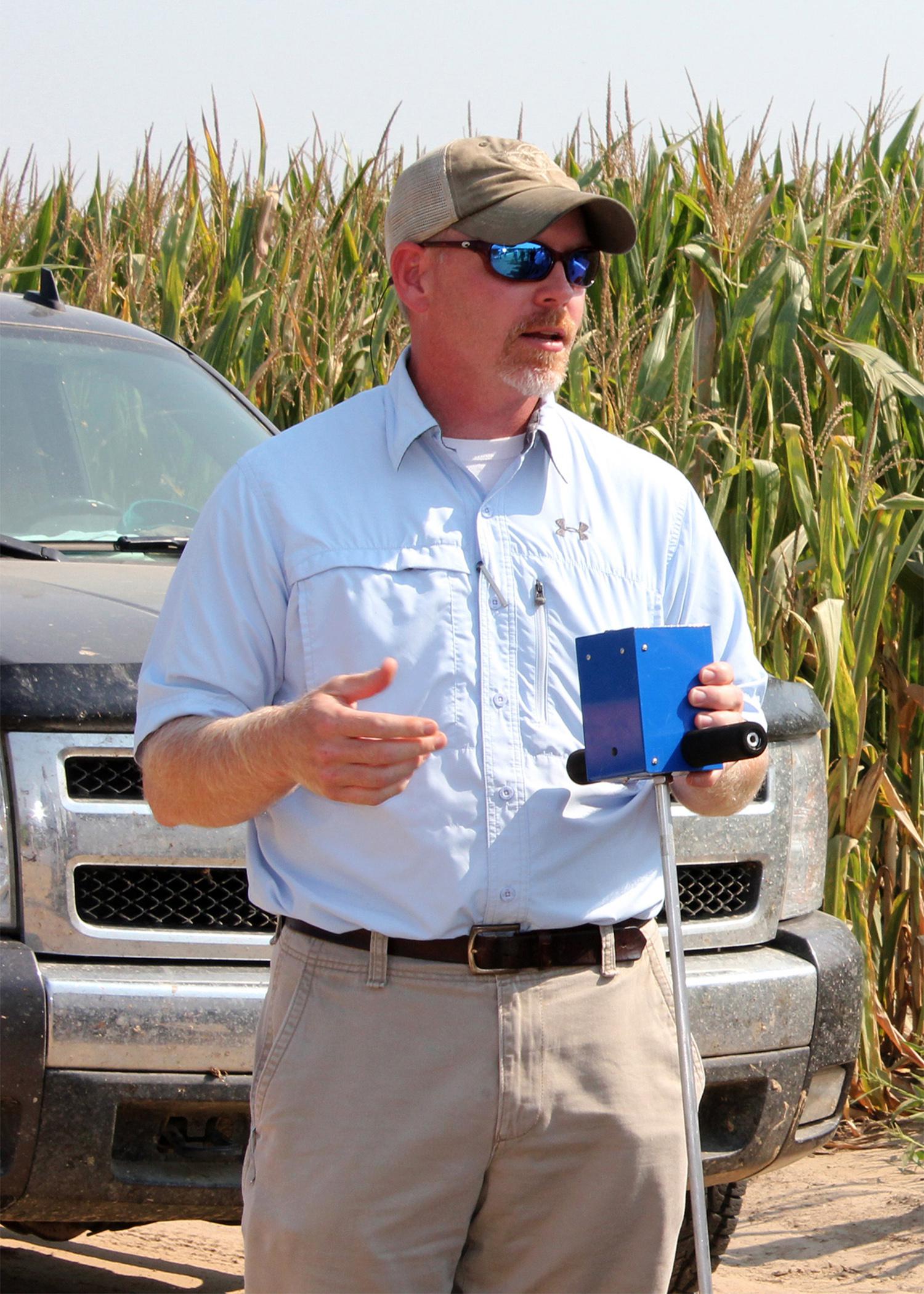Information Possibly Outdated
The information presented on this page was originally released on February 24, 2015. It may not be outdated, but please search our site for more current information. If you plan to quote or reference this information in a publication, please check with the Extension specialist or author before proceeding.
Water conservation practices can provide great benefits
STONEVILLE, Miss. -- The benefits for conserving water for farmers are the reduction of costs and the retaining of a higher yield, and Mississippi State University is promoting tools to help them achieve that goal.
Jason Krutz, an irrigation expert at the MSU Delta Research and Extension Center, said certain irrigation decisions can benefit the agricultural economy.
“We recommend that producers cut in half the water supply normally used,” he said. “The profitability of corn is improved by $50 an acre, and soybean is improved by $10 an acre. If the farmers believe that they will not profit from conserving water, then they will not do it. Our job is to show them ways to profit from conservation.”
Krutz, an irrigation specialist with the MSU Extension Service and researcher with the Mississippi Agricultural and Forestry Experiment Station, said he recommends three tools to help producers conserve water. These tools generally provide a 20-25 percent reduction of water usage, which saves around $10 dollars an acre.
“PHAUCET, Pipe Hole and Universal Crown Evaluation Tool, is a piece of software that tells farmers what size hole to poke in the piece of poly pipe so that the water is evenly distributed throughout the field,” he said. “The second tool is surge irrigation, which cuts a field into two equal sections that alternate the water back and forth through poly pipes. This program helps prevent water from running out of the furrows in the field. The third tool is soil-moisture sensors, which tells the farmer when to irrigate and when not to.”
Beth Baker, research associate with the MSU Forest and Wildlife Research Center, said Mississippi has abundant water resources, but in order to maintain these the state should promote conservation and sustainable use.
“It has been documented that the level of the Mississippi River Valley Alluvial Aquifer is dropping,” she said. “However, there is a lot of discussion about the longevity of water resources within the aquifer. Additionally, Mississippi gets an average 56 inches of rain per year. This gives Mississippi an excellent opportunity to capture and utilize surface waters.”
Baker said the rate at which the aquifer recharges is not necessarily based on the amount of average rainfall.
“Only a percentage of surface water infiltrates ground water stores, as some soils have low permeability,” she said. “According to certain research, less than 5 percent of precipitation becomes aquifer recharge, while other studies suggest that about 12 percent of precipitation becomes recharge.”
Agricultural producers are not the only ones who can get involved in conservation practices.
“If you’re not a farmer, you can do a number of things to conserve water,” Baker said. “Be a smart consumer, and know how much water goes into the production of items used every day.”
Baker said buying local food, planting a garden or starting a community garden are other ways to conserve water.
“Grow drought-tolerant plants, so the rainfall will be a sufficient water source without additional irrigation,” she said.
For more information about conserving home water resources, download “Managing Your Home Watershed” at http://bit.ly/1LBYcnN.





